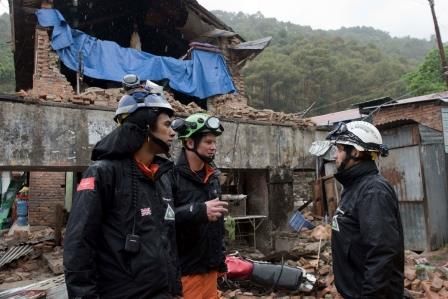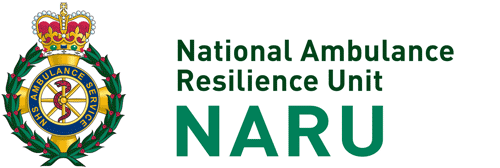South Central Ambulance Service (SCAS) and Hazardous Area Response Team (HART) Paramedic Will Selley returns from taking part in the rescue effort following the tragic earthquake in Nepal on 25 April 2015.
Will volunteers for the charity Search and Rescue Assistance in Disasters (SARAID) in his spare time. On 26 April he formed part of a team of 16 that would travel the 4483 miles from Heathrow to Nepal in a bid to work alongside others to rescue as many people as possible from the disaster hit areas.
 Despite training in Urban Search and Rescue (USAR) for almost nine years this was Will’s first deployment abroad in response to a natural disaster.
Despite training in Urban Search and Rescue (USAR) for almost nine years this was Will’s first deployment abroad in response to a natural disaster.
As a HART Paramedic, Will is trained to work in a number of different environments, of which USAR is one. Both SCAS and SARAID utilise similar equipment and working practices making skills readily transferrable between the two.
Once in the country the team was assigned a sector in the capital city of Kathmandu. Will’s team joined forces with a German USAR dog team to enhance their capabilities and therefore the chance of finding more survivors. They were tasked to identify areas within this sector where people may still have been trapped within the rubble. As the only paramedic assigned to that specific sector, Will was not only responsible for any recovered casualties, he was also responsible for the health and well-being of his fellow teammates.
When discussing the multiagency response Will said:
“At one point during the deployment there were up to 2500 USAR workers performing a number of crucial roles in the country. We all worked well together, sharing working sites and knowledge, offering the greatest possibility of rescue to any remaining survivors.”
During the deployment, the team was assigned the site of a former five-storey building where the distraught owner was still at the scene. Although almost completely collapsed there were some potentially survivable voids. Whilst Will and his co-workers were searching the rubble, the area was being surrounded by hundreds of curious and well-meaning locals creating an intense and slightly daunting environment. Will added:
“We were able to use our technical equipment to search for anyone who may have still been in the building. At one point it was thought that tapping could be heard but after several hours’ hard work searching around the area sadly that noise disappeared and nothing more could be heard. Having to leave the site without having found anyone left mixed emotions with the team and I think that will stay with me for a long time.”
Despite those thoughts Will would definitely help again. He admitted: “It was a daunting but fulfilling experience to put years of training into practice. The trip was very rewarding and I was glad that I could help with the rescue effort following the earthquake. I would feel very privileged to have the opportunity to deploy overseas. For me, having seen the response and gratitude of people on the ground who had been affected really made it worthwhile.”
